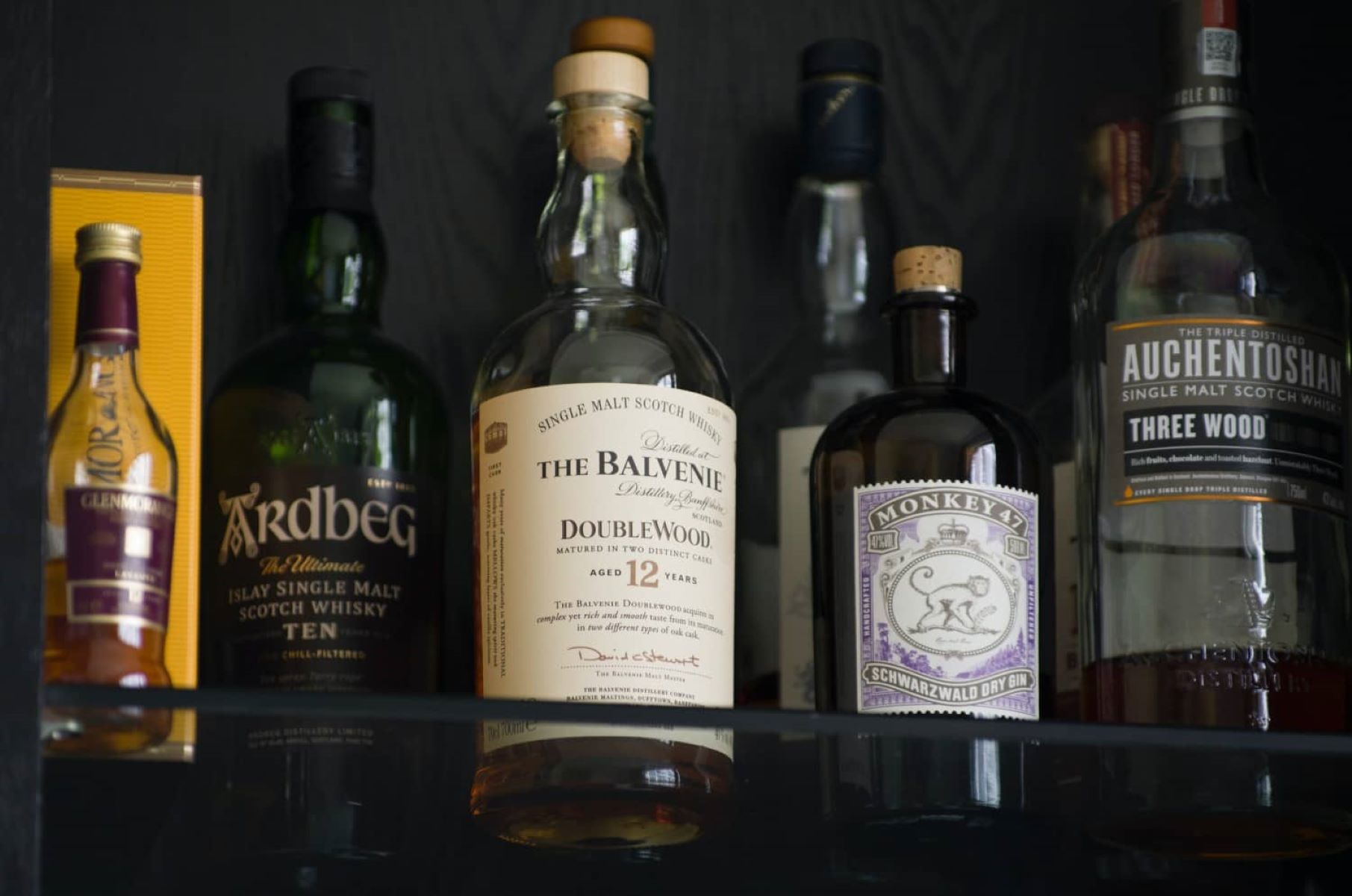

Articles
How To Store Open Whiskey
Modified: February 23, 2024
Learn how to properly store open whiskey to ensure its flavor and quality remain preserved. Check out our articles for expert tips and advice.
(Many of the links in this article redirect to a specific reviewed product. Your purchase of these products through affiliate links helps to generate commission for Storables.com, at no extra cost. Learn more)
Introduction
Whiskey is a beloved spirit enjoyed by many, whether it’s sipped neat, on the rocks, or in a delicious cocktail. However, once you’ve opened a bottle of whiskey, it’s important to store it properly to maintain its quality and flavor over time. Improper storage can lead to oxidation, loss of flavor, and even spoilage. In this article, we will explore the importance of storing open whiskey and provide you with tips and methods to ensure that your favorite spirits remain fresh and enjoyable.
So why exactly should you be concerned about storing open whiskey? Well, whiskey, like any other alcoholic beverage, is susceptible to oxidation. When exposed to air, the whiskey’s flavors and aromas can change, becoming dull or even unpleasant. Additionally, exposure to light and fluctuations in temperature can also negatively impact the whiskey’s quality. By taking proper storage measures, you can prevent oxidation and ensure that your whiskey remains enjoyable for longer periods.
When considering how to store open whiskey, there are a few factors to keep in mind. Firstly, the type of whiskey plays a role in determining the optimal storage conditions. This includes the whiskey’s age, proof, and flavor profile. Secondly, the length of time you plan to store the open bottle also affects the storage method you should choose. Lastly, the environment in which you store the whiskey, including temperature, light, and humidity levels, can significantly impact its shelf life.
Now that we understand the importance of storing open whiskey properly and the factors to consider, let’s dive into the ideal storage conditions for your favorite spirit. By following these guidelines, you can ensure that each dram of whiskey you pour is as delicious as the first time you opened the bottle.
Key Takeaways:
- Properly storing open whiskey is crucial to preserve its flavor, prevent spoilage, and extend its shelf life. Consider factors like air exposure, temperature, and storage methods to ensure a delightful drinking experience.
- Avoid common mistakes such as excessive air exposure, improper storage containers, and neglecting the storage environment when storing open whiskey. By following proper storage practices, you can enjoy your favorite spirits for an extended period while maintaining their quality and distinct flavors.
Read more: How To Store Opened Whiskey
Why should you store open whiskey properly?
Properly storing open whiskey is crucial to maintain its quality and flavor over time. Here are a few reasons why you should pay attention to how you store your favorite spirit:
- Preserve the flavor: When whiskey is exposed to air, it undergoes oxidation, which can alter its taste and aroma. Proper storage can help slow down this process and preserve the delightful flavors that make each whiskey unique.
- Prevent spoilage: Open whiskey is still susceptible to spoilage caused by bacteria and other contaminants. Storing it properly can help prevent the growth of harmful microorganisms and ensure that your whiskey remains safe to consume.
- Extend shelf life: Whiskey that is stored correctly can have a longer shelf life. This means you can enjoy your favorite drink for an extended period, without worrying about it losing its quality and turning undrinkable.
- Cost-saving: Whiskey can be an investment, especially if you have a collection of premium bottles. By storing open whiskey properly, you can prevent wastage and make the most out of your investment, ensuring that each sip is worth it.
- Enhance drinking experience: The pleasure of savoring a well-aged whiskey lies in its nuances and complexities. Storing open whiskey properly helps maintain the integrity of the spirit, allowing you to enjoy its full range of flavors and aromas, enhancing your overall drinking experience.
By understanding the importance of proper storage, you can ensure that your open whiskey maintains its quality, allowing you to enjoy it to the fullest. In the next section, we will explore the factors to consider when storing open whiskey, so you can make informed decisions about how to best care for your favorite spirit.
Factors to consider when storing open whiskey
When it comes to storing open whiskey, there are several factors you should take into consideration. These factors can significantly impact the longevity and quality of your whiskey. Let’s explore them below:
- Type of whiskey: Different types of whiskey have different storage requirements. For example, Scotch whisky and bourbon may have different flavor profiles and aging processes, which can influence how they should be stored once opened. Familiarize yourself with the specific recommendations for your type of whiskey.
- Air exposure: As mentioned earlier, exposure to air can lead to oxidation, which affects the flavor of the whiskey. Minimize air exposure by tightly sealing the bottle after each use. Consider transferring the whiskey to smaller containers if there is a significant amount of empty space in the original bottle.
- Temperature: Fluctuations in temperature can accelerate the aging process of whiskey and impact its flavor. It is best to store open whiskey in a cool, dark place where the temperature remains consistent. Avoid storing whiskey in locations exposed to direct sunlight or extreme temperatures.
- Light exposure: Just like temperature, exposure to light can degrade the quality of whiskey. Ultraviolet (UV) rays can cause chemical reactions that alter the flavors and aromas. Store whiskey in a place that is shielded from direct sunlight or consider using amber-colored bottles to block out harmful light.
- Humidity: Humidity levels can affect the integrity of the whiskey’s cork or seal. High humidity can cause the cork to deteriorate, leading to leakage and potential spoilage. Aim for a moderate humidity level to ensure the longevity of your open whiskey.
- Orientation: The orientation in which you store the whiskey bottle can also impact its quality. It is generally recommended to store whiskey upright to minimize the risk of the whiskey interacting too much with the cork, which could result in a musty or corked flavor.
- Time: The length of time you plan to store the open whiskey will also influence how you should store it. If you plan to consume the whiskey within a few months, ensuring proper seal and storage conditions might be enough. However, if you intend to store it for an extended period, you might need to consider additional measures such as decanting or using specialized preservation methods.
- Your personal taste preference: Lastly, your personal taste preference plays a role in storing open whiskey. Some whiskey enthusiasts prefer their whiskey to continue aging and developing flavor over time, while others want to preserve the original characteristics of the whiskey when they first opened it. Consider your preference when deciding how to store your whiskey.
By taking these factors into account, you can implement the appropriate storage methods for your open whiskey. In the next section, we will delve into the ideal storage conditions for open whiskey, ensuring that you can enjoy your favorite spirits at their best.
The ideal storage conditions for open whiskey
To preserve the quality and flavor of your open whiskey, it is essential to store it in the ideal conditions. Proper storage ensures that the whiskey ages gracefully and maintains its unique characteristics. Here are the key elements to consider:
- Temperature: Whiskey should be stored at a stable temperature, preferably between 15°C and 20°C (59°F and 68°F). Avoid extreme temperature fluctuations, as they can impact the aging process and result in unwanted changes to the flavor profile. A consistent and moderate temperature will help maintain the integrity of the whiskey.
- Light: Exposure to light, especially direct sunlight or harsh artificial light, can be detrimental to whiskey. UV rays can break down organic compounds and alter the flavors and aromas. Store your open whiskey in a dark place or use amber-colored bottles to shield it from light and preserve its quality.
- Humidity: Moderate humidity levels, between 50% and 70%, are ideal for storing open whiskey. Excessive humidity can cause labels to peel off and affect the integrity of the cork or seal. Conversely, very low humidity can dry out the whiskey and impact its overall quality. Aim for a moderate humidity level in your storage area.
- Ventilation: Good ventilation is essential to prevent any unwanted odors or flavors from affecting the whiskey. Avoid storing your whiskey in close proximity to strong-smelling substances such as cleaning agents or spices. A well-ventilated area will help maintain the whiskey’s pure and distinct characteristics.
- Upright or inverted: When it comes to storing open whiskey, there is a debate about whether bottles should be stored upright or inverted. Storing the bottle upright minimizes the risk of the whiskey interacting with the cork, which could potentially result in a musty or corked flavor. However, some argue that storing the whiskey slightly inverted helps keep the cork moist and prevents it from drying out. Ultimately, the choice will depend on personal preference and the type of closure on the bottle.
- Seal and closure: Properly sealing the bottle after each use is crucial to prevent air from entering and oxidizing the whiskey. Ensure that the closure is tight and secure. If the original cork is worn or damaged, consider using alternative closures like bottle stoppers or vacuum-sealed caps to maintain a proper seal.
By storing your open whiskey in the ideal conditions, you can prolong its shelf life and enjoy the flavors and aromas as intended by the distiller. In the next section, we will explore different methods of storing open whiskey, so you can choose the one that best suits your needs and preferences.
Store open whiskey in a cool, dark place away from direct sunlight and extreme temperatures. Keep the bottle tightly sealed to prevent oxidation and maintain the flavor.
Different methods of storing open whiskey
When it comes to storing open whiskey, there are various methods you can choose from depending on your preferences and the length of time you plan to store the bottle. Here are some common methods to consider:
- Original bottle: The simplest and most common method is to store the open whiskey in its original bottle. Ensure that the bottle is tightly sealed after each use to minimize air exposure. Keep the bottle in a cool, dark place away from direct sunlight. This method is suitable for short-term storage or if you plan to consume the whiskey within a few months.
- Decanting: Decanting involves transferring the whiskey from its original bottle to a different container, typically a decanter. This method can be useful for both aesthetic and practical purposes. A well-designed decanter not only adds a touch of elegance to your whiskey collection but also allows you to store the whiskey in a container with a better seal, reducing air exposure. Make sure the decanter is clean, airtight, and made of non-reactive material to preserve the quality of the whiskey.
- Inert gas preservation: Using inert gas, such as argon or nitrogen, is another method to preserve open whiskey. These gases are heavier than air and form a protective blanket over the whiskey, preventing oxidation. Simply insert the gas into the bottle after each use and seal it tightly. This method is particularly effective for long-term storage as it significantly reduces the contact between the whiskey and air.
- Freezing: Freezing is a method commonly used for short-term storage of open whiskey. Pour the whiskey into smaller glass bottles, leaving some headspace for expansion, and store them in the freezer. This method slows down the aging process and helps maintain the flavor profile. However, keep in mind that freezing can dull some of the flavors, so it might not be suitable for all whiskey types.
- Wine preserver pump: A wine preserver pump can also be used to remove excess air from the whiskey bottle. It works by creating a vacuum seal, reducing oxidation. Pump the air out of the bottle and tightly seal it with a stopper. This method is relatively easy to implement and can extend the shelf life of open whiskey.
- Cork replacement: If the original cork is worn out or damaged, consider replacing it with a new cork or synthetic closure. This ensures a tight seal and minimizes air exposure. Make sure to clean the bottle’s neck before inserting the new closure to avoid any contamination.
It’s important to note that each method has its pros and cons, and the most suitable option will depend on factors such as your storage conditions, the type of whiskey, and the duration you plan to store the open bottle. Experiment with different methods to find the one that works best for you.
Now that we’ve explored the various methods of storing open whiskey, it’s important to consider some tips for prolonging the shelf life and maintaining the quality of your favorite spirit. We’ll discuss these tips in the next section.
Read more: How To Store Whiskey After Opening
Tips for prolonging the shelf life of open whiskey
To ensure that your open whiskey remains fresh and enjoyable for as long as possible, here are some helpful tips to consider:
- Proper sealing: After each use, make sure to tightly seal the bottle to minimize air exposure. This will help slow down the oxidation process and preserve the flavors and aromas of the whiskey. Check the seal regularly to ensure it is intact and secure.
- Store in a cool and dark place: Keep your open whiskey in a cool, dark environment away from direct sunlight and heat sources. High temperatures can speed up the aging process and adversely affect the whiskey’s quality.
- Avoid frequent temperature changes: Consistent temperature is key to preserving the whiskey’s flavor. Avoid exposing the bottle to frequent temperature changes, as this can cause the liquid to expand and contract, potentially compromising the integrity of the whiskey.
- Minimize bottle movement: It’s best to store open whiskey bottles in a place where they will not be disturbed or moved frequently. Unnecessary movement can agitate the whiskey and accelerate the oxidation process. Choose a stable location where the bottles can remain undisturbed.
- Use smaller containers: If you have a significant amount of empty space in the original bottle, considering transferring the whiskey to smaller containers. This will reduce the air exposure inside the bottle and slow down oxidation. Ensure that the smaller containers are clean, airtight, and made of non-reactive material.
- Label your bottles: Keep track of the whiskey’s age, type, and date of opening by labeling the bottles. This will help you remember when you opened the bottle and monitor its aging process. It’s also useful if you have multiple bottles in your collection.
- Keep humidity in check: Maintain moderate humidity levels in the storage area to prevent the cork from drying out or mold from forming. Avoid storing whiskey in overly humid environments, as this can damage the labels and affect the whiskey’s quality.
- Limit air exposure during pouring: When pouring whiskey, minimize the time the bottle remains open to reduce air exposure. Pour the desired amount quickly and recap the bottle promptly.
- Rotate your bottles: If you have a collection of open whiskey bottles, consider rotating them regularly. This helps ensure that all bottles receive the same level of attention and prevents one bottle from unintentionally aging more quickly than others.
By following these tips, you can prolong the shelf life of your open whiskey and maintain its quality and flavor profile. Now, let’s discuss some common mistakes to avoid when storing open whiskey to ensure you make the most out of your favorite spirits.
Common mistakes to avoid when storing open whiskey
When it comes to storing open whiskey, there are a few mistakes that should be avoided to ensure the longevity and quality of the spirit. Here are some common pitfalls to watch out for:
- Excessive air exposure: Leaving the whiskey bottle open for extended periods or not sealing it properly can lead to excessive air exposure. This can result in accelerated oxidation, causing the whiskey to lose its flavors and aromas. Always make sure to tightly seal the bottle after each use to minimize air contact.
- Storing near heat sources: Heat can adversely affect the quality of whiskey. Avoid storing open bottles near heat sources such as radiators, stoves, or direct sunlight. Elevated temperatures can accelerate the aging process and lead to a less enjoyable drinking experience.
- Storing in the refrigerator: While it may seem logical to store open whiskey in the refrigerator, this can actually have negative effects on the spirit. The cold temperatures can dull the flavors and aromas, resulting in a less satisfying drinking experience. Instead, opt for a cool and dark place outside of the refrigerator.
- Using improper storage containers: If you choose to transfer your whiskey to a different container, make sure it is suitable for long-term storage. Avoid using containers made of reactive materials like certain plastics, as they can impact the flavor of the whiskey. Opt for glass or non-reactive materials that will not alter the taste of the spirit.
- Not checking the seal: Over time, the seal on the whiskey bottle can deteriorate or become loose. It’s important to regularly check the seal and replace it if necessary. A compromised seal can lead to increased air exposure and quicken the oxidation process.
- Ignoring the environment: The storage environment plays a crucial role in the preservation of whiskey. Avoid storing bottles in areas with drastic temperature fluctuations, high humidity, or exposure to strong odors. Maintain a stable, moderate climate to ensure the whiskey’s quality remains intact.
- Storing whiskey horizontally: Storing whiskey bottles horizontally can increase the whiskey’s contact with the cork, potentially causing it to degrade or impart unwanted flavors to the spirit. It is generally advised to store bottles upright or slightly inverted to minimize contact with the cork.
- Not rotating your collection: If you have multiple open bottles of whiskey, it’s important to rotate them regularly. By doing so, you ensure that each bottle receives equal attention and aging, preventing one bottle from becoming overexposed to air or aging faster than others.
- Improper cleaning of containers: When transferring whiskey to different containers, ensure that they are thoroughly cleaned and free of any odors or residue. Use mild soap and warm water to clean the containers, rinse them thoroughly, and allow them to dry completely before adding the whiskey.
By avoiding these common mistakes and following proper storage practices, you can enjoy your open whiskey for an extended period, maintaining its quality and preserving the distinct flavors and aromas. Now, let’s wrap up our discussion.
Conclusion
Properly storing open whiskey is essential to maintain its quality, preserve its flavor, and ensure a delightful drinking experience every time you pour a glass. By following the guidelines and tips discussed in this article, you can prolong the shelf life of your favorite spirits and savor the nuanced profiles they offer.
Remember to consider the type of whiskey, minimize air exposure, store in suitable conditions, and implement the right storage method based on your needs and preferences. Whether you choose to keep the whiskey in its original bottle, transfer it to a decanter, use inert gas preservation, or any other method, make sure to take into account the factors that can affect the aging process and flavor development.
Avoid common mistakes such as excessive air exposure, improper storage containers, storing near heat sources, and neglecting the seal and storage environment. These mistakes can compromise the quality and taste of your open whiskey.
By treating your open whiskey with care, you can enjoy its rich flavors, complex aromas, and distinctive character for an extended period. So, raise a glass to the art of storing open whiskey properly and savor every sip of your beloved spirits.
Frequently Asked Questions about How To Store Open Whiskey
Was this page helpful?
At Storables.com, we guarantee accurate and reliable information. Our content, validated by Expert Board Contributors, is crafted following stringent Editorial Policies. We're committed to providing you with well-researched, expert-backed insights for all your informational needs.
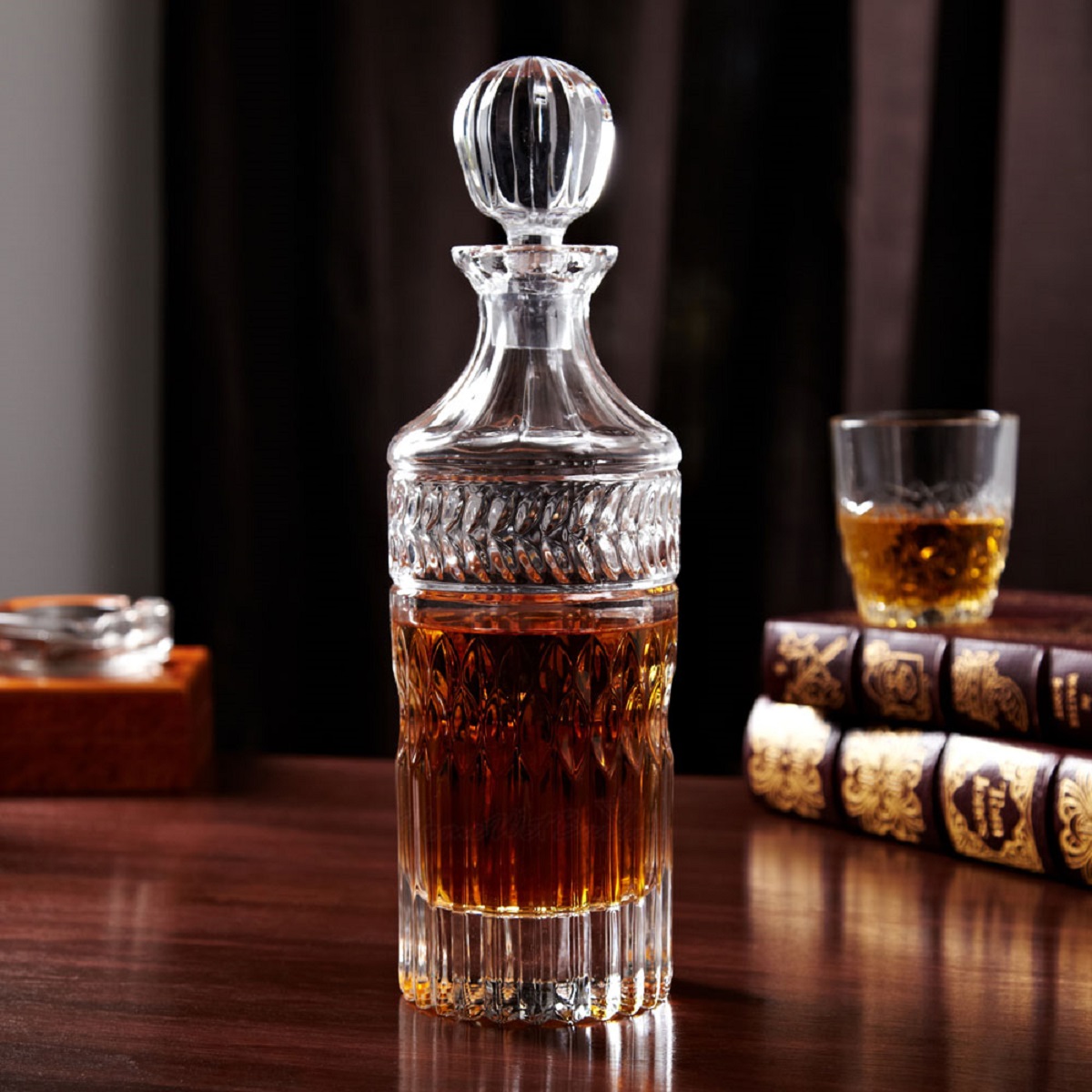

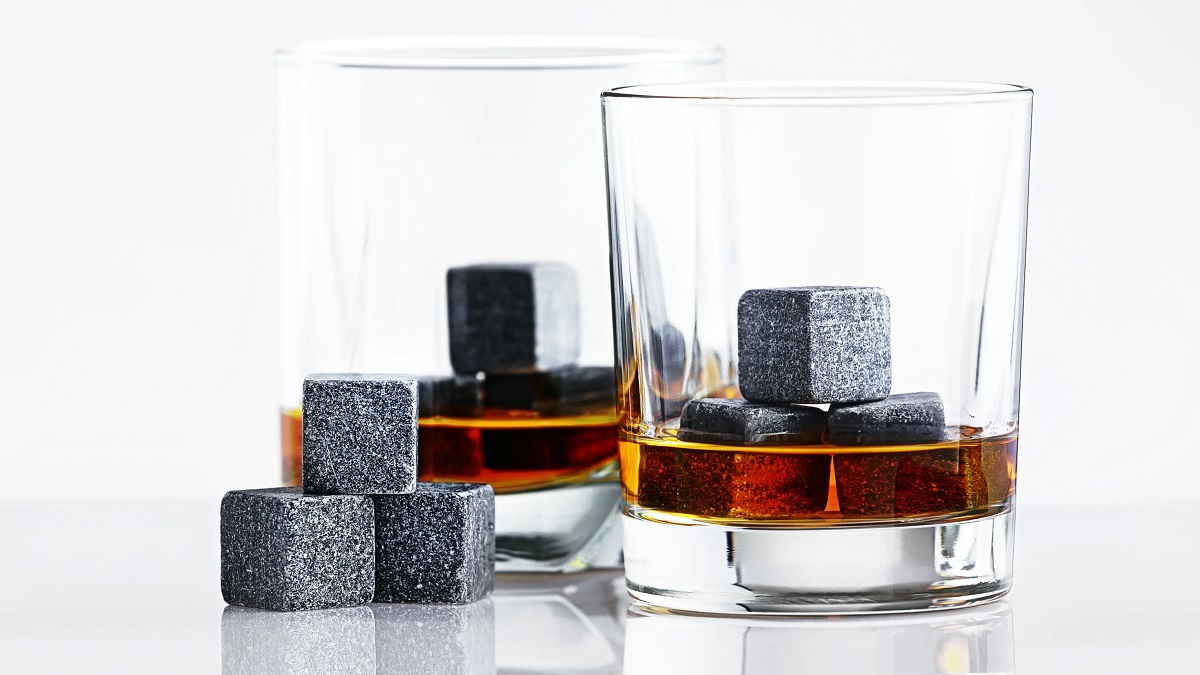
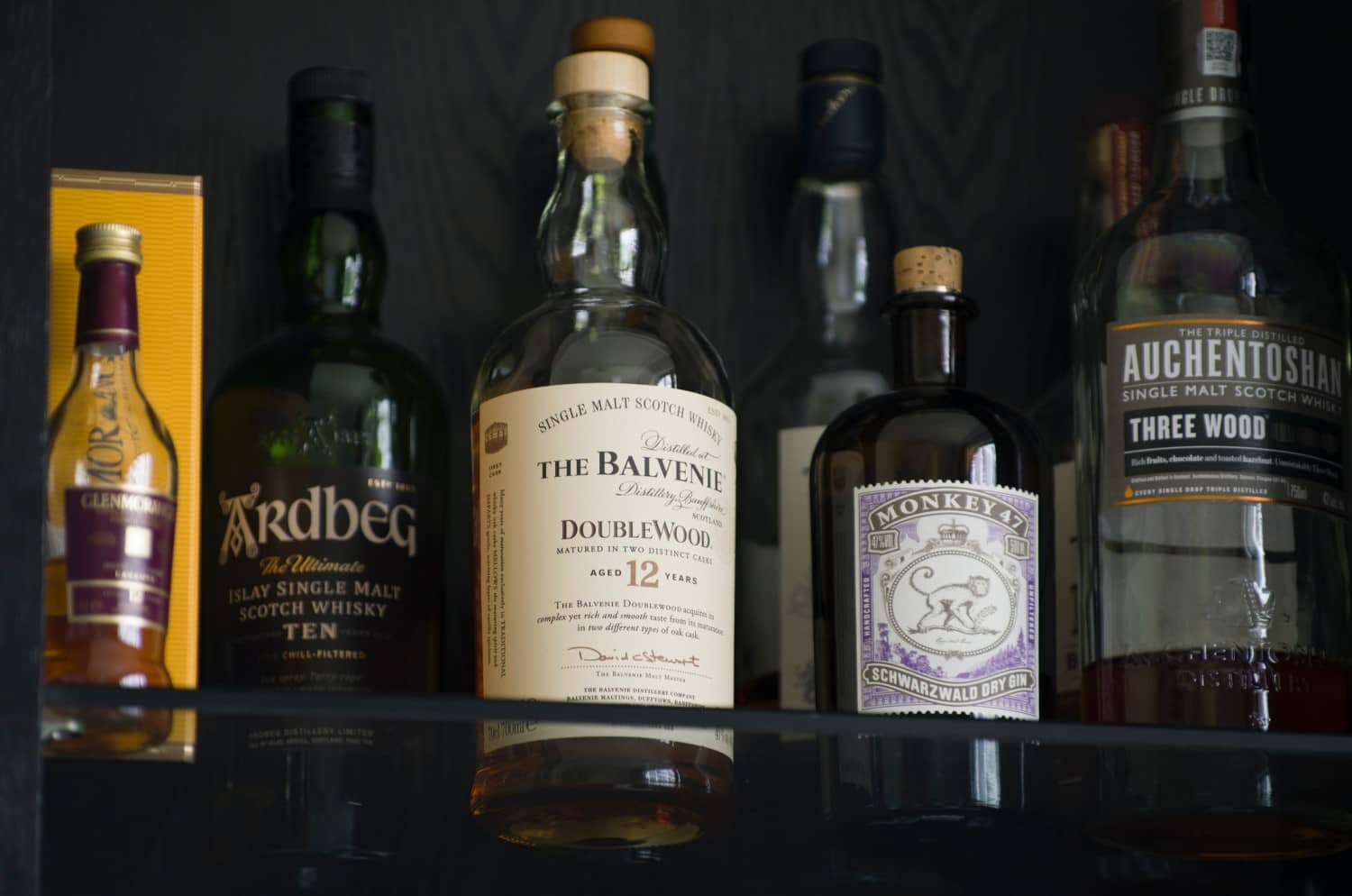




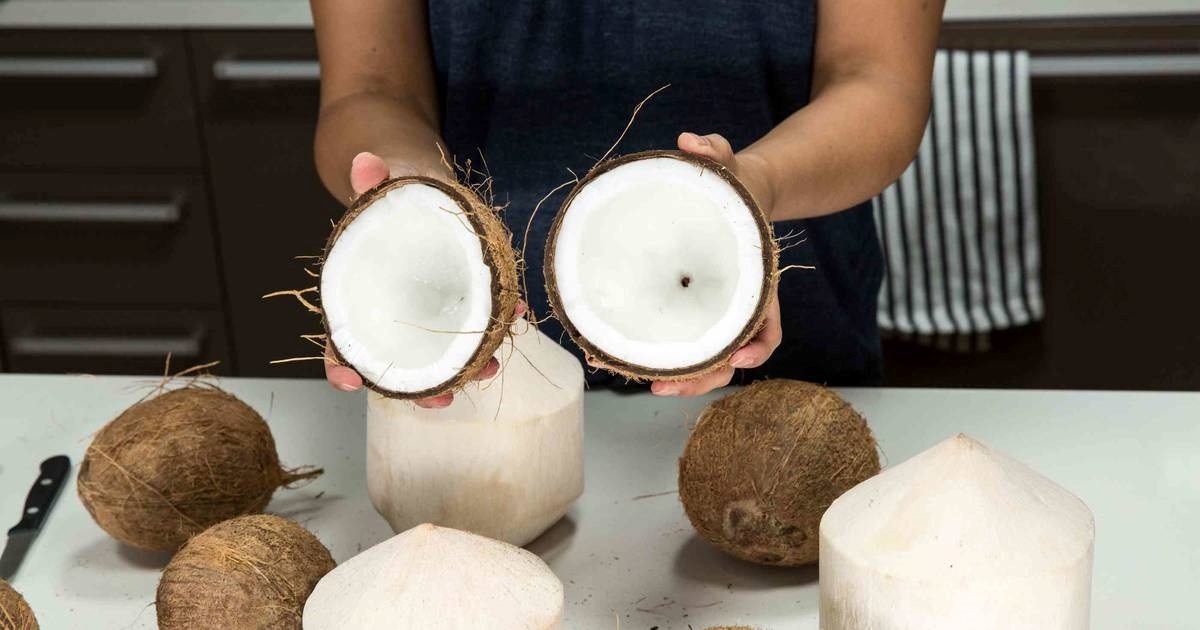
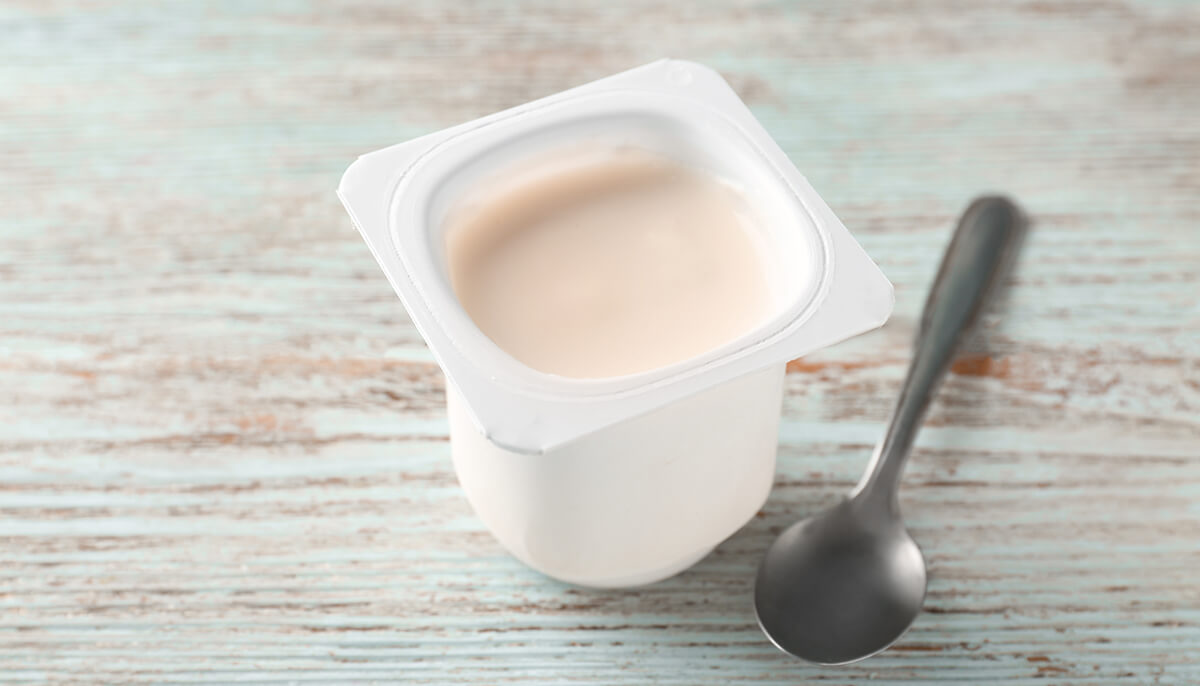
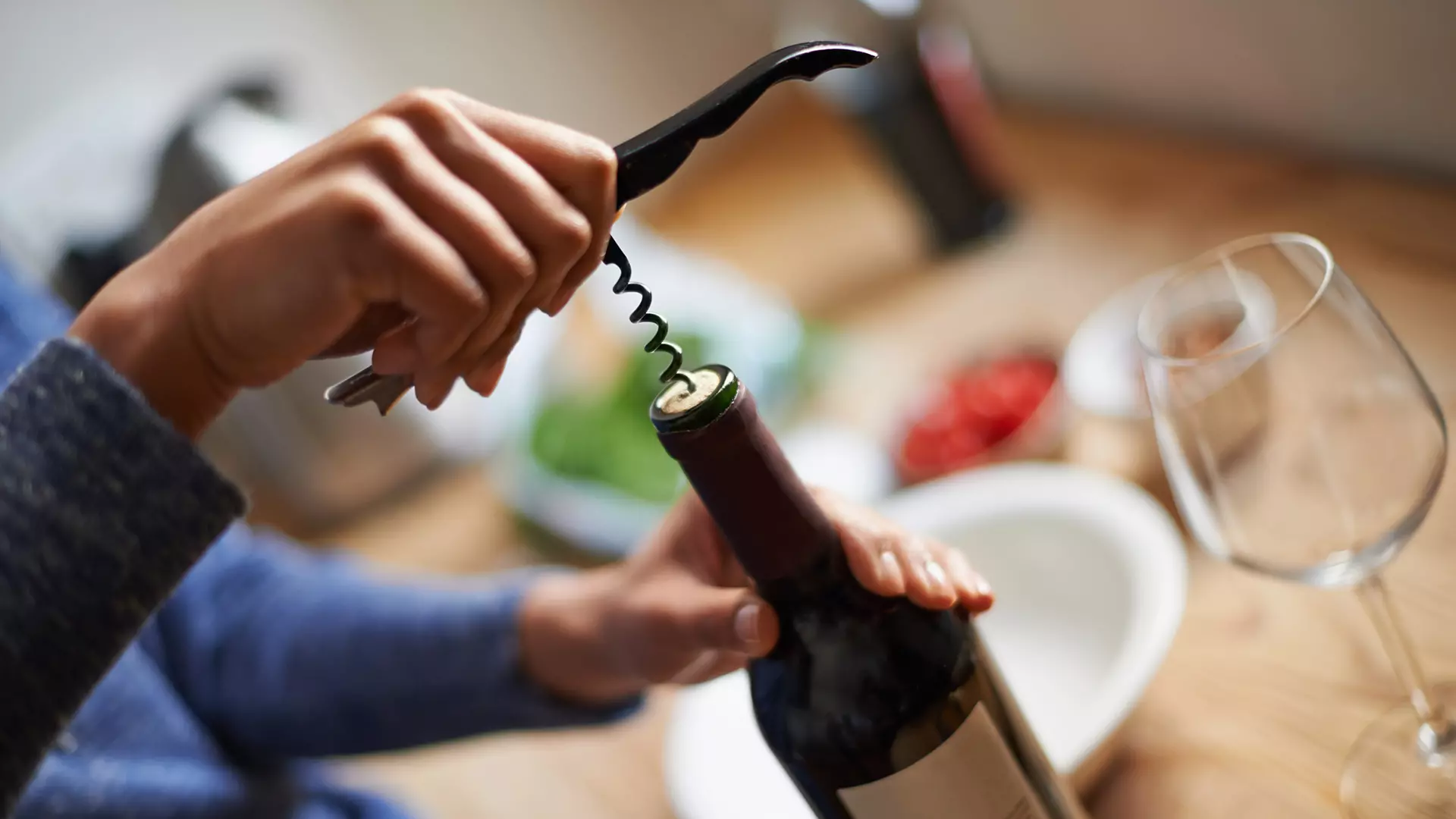
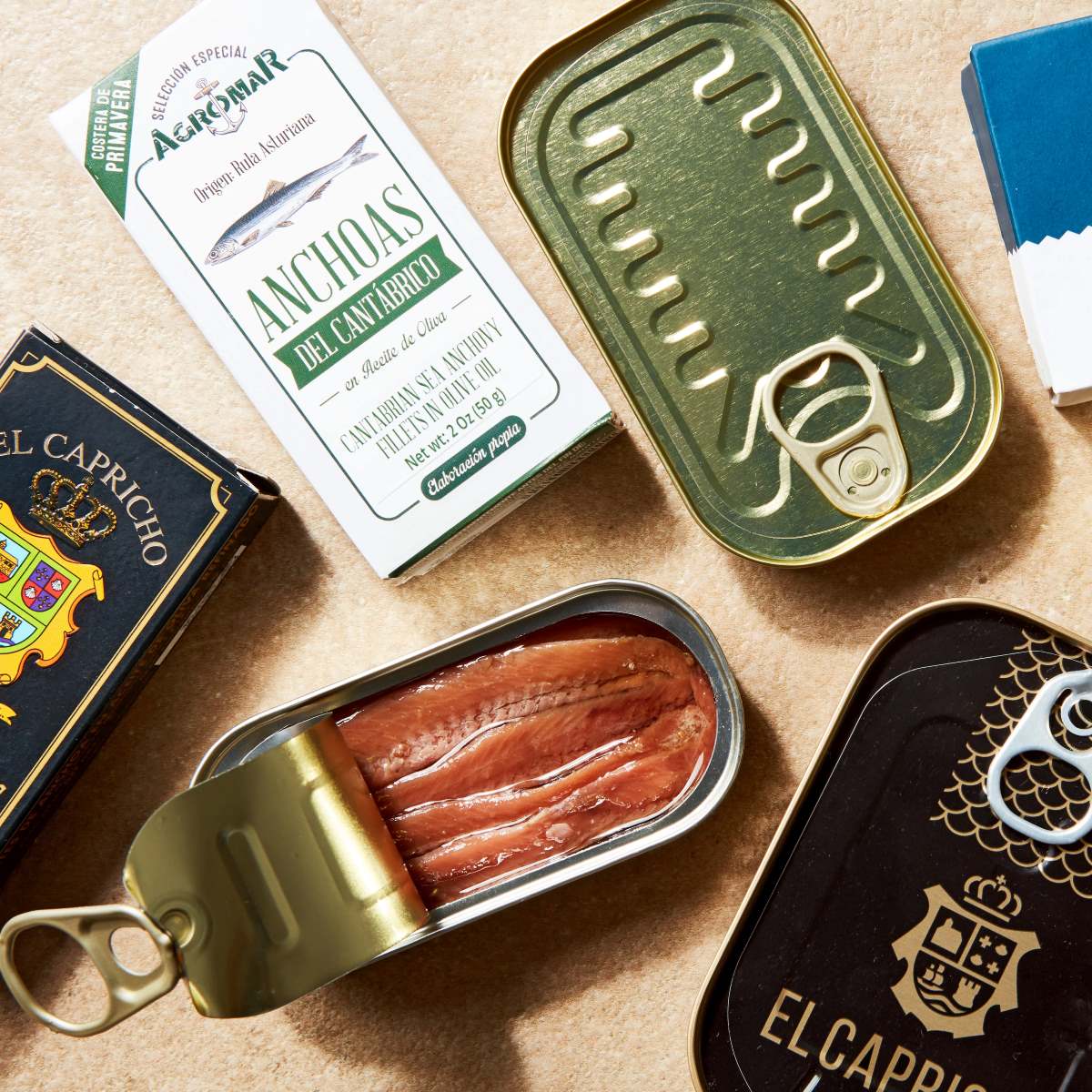



0 thoughts on “How To Store Open Whiskey”